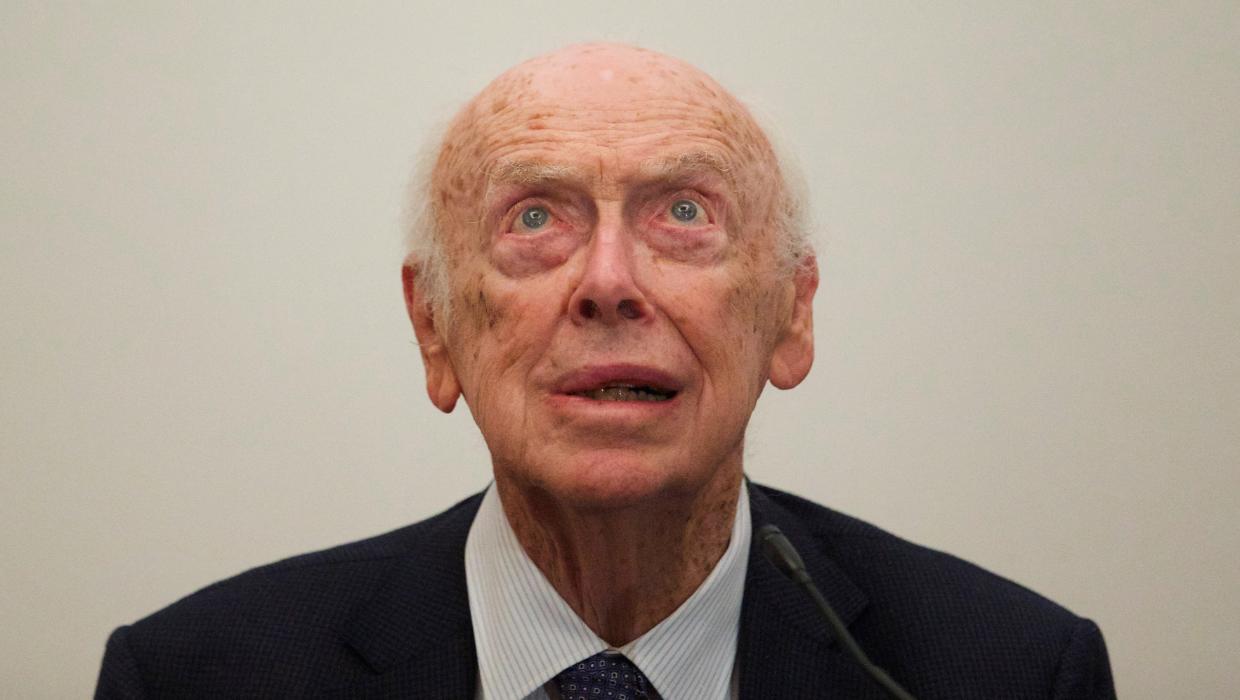Science
Pioneering Scientist James Watson Passes Away at 95

James Watson, the co-discoverer of the double helix structure of DNA, has passed away at the age of 95. His groundbreaking work in 1953 revolutionized the field of genetics and earned him a Nobel Prize in Physiology or Medicine in 1962. Despite his scientific achievements, Watson’s later years were marked by controversy due to his divisive comments on race and intelligence, which led to significant backlash from the scientific community.
Watson was born on April 6, 1920, in Chicago, Illinois. He began his career in biology at the University of Chicago and later moved to Europe, where he collaborated with Francis Crick at the Cavendish Laboratory in Cambridge. Together, they published a seminal paper in the journal Nature, detailing the double helix model of DNA, which has been described as one of the most important discoveries in the history of biology.
Legacy and Controversy
While Watson’s early work earned him acclaim, his later life was overshadowed by controversy. In interviews and public appearances, he made statements that many considered racist and scientifically unfounded. This led to widespread condemnation from fellow scientists and organizations, including the Cold Spring Harbor Laboratory, where he served as president for many years. In 2019, the laboratory announced that it would remove his name from its conference center, reflecting the growing disapproval of his views.
Despite the controversies, Watson’s contributions to science are undeniable. His research helped lay the groundwork for numerous advancements in genetics, including the Human Genome Project, which has had profound implications for medicine and biology. Many scientists acknowledge the complexity of his legacy, recognizing both his pivotal role in the discovery of DNA’s structure and the troubling aspects of his later public persona.
Watson’s passing marks the end of an era in molecular biology. He is survived by his three children, who have expressed pride in their father’s scientific achievements while acknowledging the complications of his later views. As the scientific community reflects on his life, discussions about the interplay between scientific achievement and personal beliefs are likely to continue.
In conclusion, James Watson’s life was a tapestry of remarkable scientific discovery intertwined with significant ethical controversies. His legacy will undoubtedly spark ongoing debates regarding the responsibilities of scientists as public figures and the impact of their words beyond the laboratory.
-

 World3 months ago
World3 months agoTest Your Knowledge: Take the Herald’s Afternoon Quiz Today
-

 Sports3 months ago
Sports3 months agoPM Faces Backlash from Fans During Netball Trophy Ceremony
-

 Lifestyle3 months ago
Lifestyle3 months agoDunedin Designers Win Top Award at Hokonui Fashion Event
-

 Sports3 months ago
Sports3 months agoLiam Lawson Launches New Era for Racing Bulls with Strong Start
-

 Lifestyle3 months ago
Lifestyle3 months agoDisney Fan Reveals Dress Code Tips for Park Visitors
-

 World4 months ago
World4 months agoCoalition Forms to Preserve Māori Wards in Hawke’s Bay
-

 Health3 months ago
Health3 months agoWalking Faster Offers Major Health Benefits for Older Adults
-

 Politics3 months ago
Politics3 months agoScots Rally with Humor and Music to Protest Trump’s Visit
-

 Top Stories4 months ago
Top Stories4 months agoUK and India Finalize Trade Deal to Boost Economic Ties
-

 Entertainment3 months ago
Entertainment3 months agoExperience the Excitement of ‘Chief of War’ in Oʻahu
-

 World4 months ago
World4 months agoHuntly Begins Water Pipe Flushing to Resolve Brown Water Issue
-

 Science4 months ago
Science4 months agoNew Interactive Map Reveals Wairarapa Valley’s Geological Secrets









